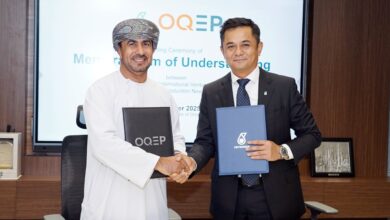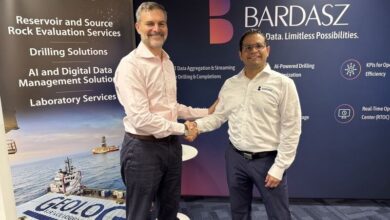OMV plans roll-out of real-time operations support workflow after success in Tunisia
By Katie Mazerov, contributing editor

A protocol for delivering real-time operations support for small-scale, geographically dispersed drilling campaigns is giving crews in far-flung fields easier access to technical expertise. Austrian operator OMV developed and tested the workflow for a drilling program in Tunisia and later this year plans to roll out the system for its operations across 10 countries and four continents. “We devised a system that gives us the benefit of real-time operational data and promotes greater collaboration among the various drilling teams but keeps decision-making connected to the field,” OMV’s Richard Kucs said in a presentation at the 2014 IADC/SPE Drilling Conference & Exhibition on 5 March in Fort Worth, Texas.
Whereas large-scale operators and service companies increasingly rely on full-time dedicated support centers serving multiple rigs, smaller operators find it difficult to justify the expense and ongoing costs that a large operations center requires, Mr Kucs explained. “Our plan was to set up a central server to stream real-time data from the rigs for all wells and establish a third-party ‘app’ that can receive and digest the data, similar to a smart phone.
“The technology was the easy part because it is all existing software,” Mr Kucs continued. The challenge was to change the mindset in the organization, which has had limited experience with real-time data, and encourage collaboration. OMV identified three major questions it needed to address to inspire employees to embrace the system:
- How would rig crews, who are dispersed over half the world, know who to contact if they need help?
- How could OMV ensure commitment and buy-in of local drilling teams?
- How would the rig crew know when to “escalate” a problem to a higher level for support?
The company established a 24/7 real-time operations Focal Point based in the head office to serve as a communications hub, funnel requests from the local operations team to specialists and facilitate a permanently open virtual meeting room. A skills map of experts available for various operations also was devised.
“The biggest concern from our teams in the field was that they would be overwhelmed by phone calls from the head office looking at real-time data,” Mr Kucs said. OMV decided to maintain its existing decentralized decision-making structure, while giving local teams access to all data and expertise by breaking down communication and organizational barriers. All employees are required to sign a Communications Ethics document that outlines the process for escalating warnings and assures the rig supervisor that he or she will always be the final decision-maker.
The system was field-tested over a three-month period in Tunisia, where drilling operations are located in the Sahara Desert in the south and the office drilling team is 18 hours away in the northern city of Tunis. With the drilling supervisor willing to spearhead the idea, OMV installed the technology and launched one-on-one software training. The workflow called for the rig supervisor to contact the local office team for help if needed. The local drilling team would then contact the head office via Focal Point for further expertise and, if necessary, the head office would contact the support team to open the telephone conference for real-time data visualization.
In this case, the local team monitored the entire drilling operation without the need to contact the head office. The feedback from the drilling team was that the system helped them focus on ongoing operations when necessary and to plan the next well. Going forward, the local team wants the same workflow in place for subsequent drilling campaigns. “By implementing the technology and organizational measures throughout the company, we believe can get to a very slim and cost-effective system that achieves a high level of cooperation and decision-making connected to situations in the field,” Mr Kucs said.
For more information, see IADC/SPE 168007, “Real-Time Operations Support for Geographically Dispersed Operations.”




